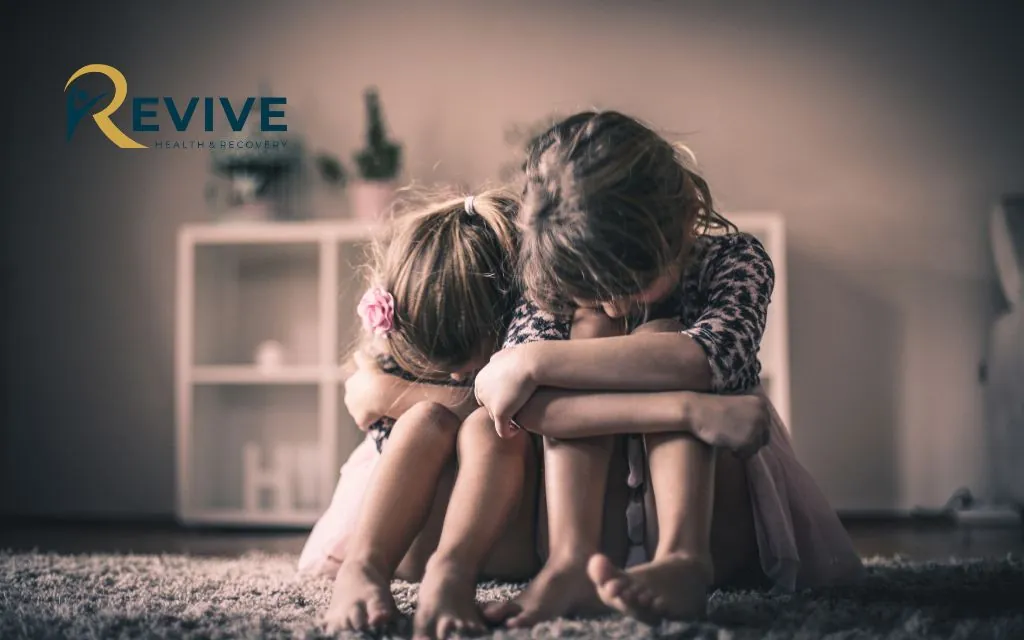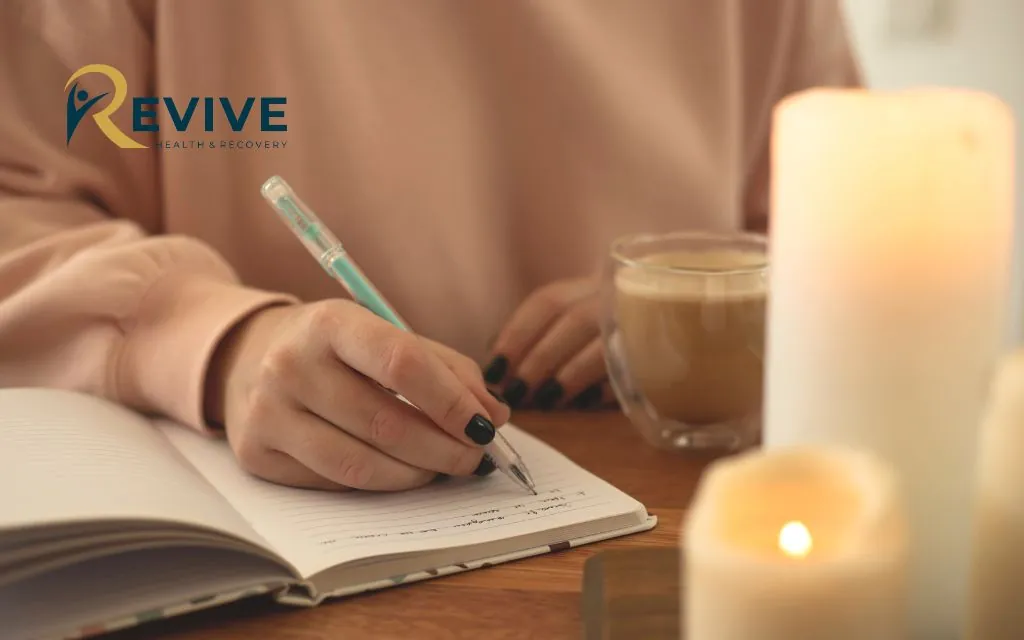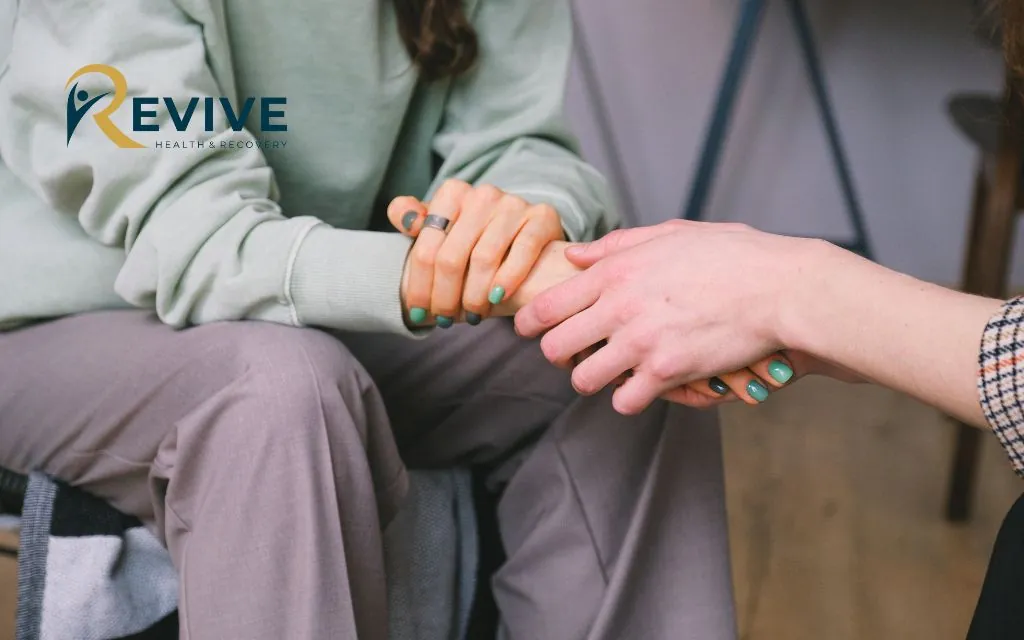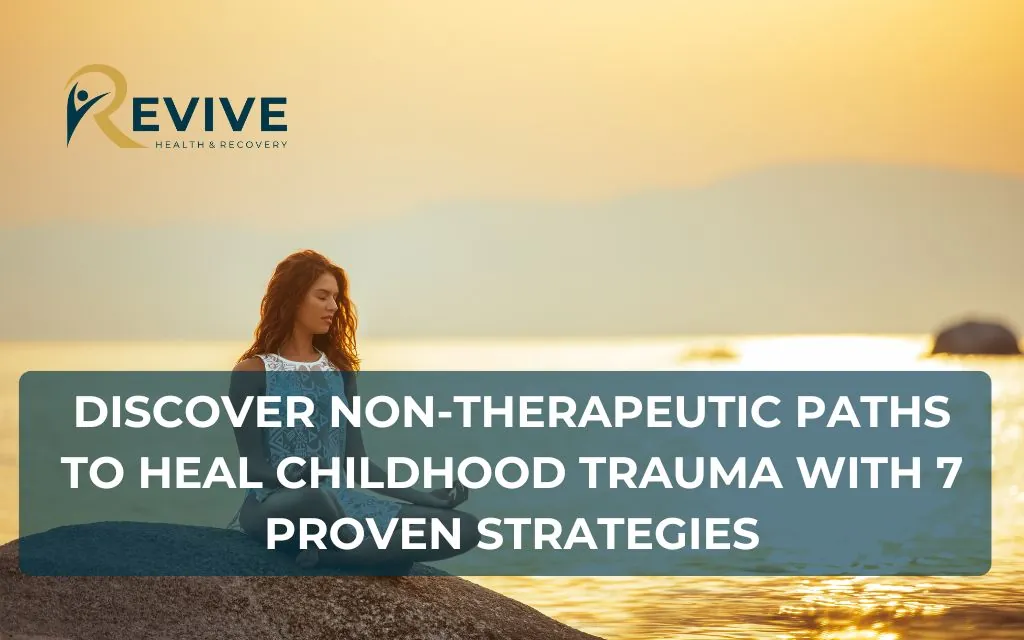Childhood trauma leaves lasting impressions that can affect your daily life, relationships, and well-being. While therapy offers valuable support, many people seek alternative paths to healing. Whether due to financial constraints, personal preference, or simply wanting to know how to heal from childhood trauma without therapy by yourself, there are numerous effective ways to address childhood trauma outside traditional therapy settings.
At Revive Health Recovery, we understand that everyone’s healing journey looks different. This guide offers practical, research-backed approaches to healing childhood trauma on your own terms, with special resources for our Denver community.
Understanding Childhood Trauma and Why Therapy Isn’t Always the Answer
What Is Childhood Trauma?
Childhood trauma stems from distressing experiences during your formative years—including physical or emotional abuse, neglect, household dysfunction, or witnessing violence. According to the CDC, over 60% of American adults report experiencing at least one Adverse Childhood Experience (ACE). In Colorado specifically, KIDS COUNT data shows that childhood trauma affects a significant portion of our community.
These early experiences can manifest as anxiety, depression, relationship difficulties, or physical health problems. Your brain and nervous system adapted to protect you during those challenging times, but these adaptations often persist long after the danger has passed, especially worsening over time for those who do not know how to deal with it.
Why Some Avoid Therapy – and That’s Okay
While therapy provides tremendous benefits, many valid reasons exist for seeking alternatives:
- Cost barriers and lack of insurance coverage
- Limited access to trauma-informed professionals
- Concerns about privacy or stigma
- Cultural or personal preferences
- Desire for self-directed healing
Your choice to pursue healing outside of therapy doesn’t make your journey any less valid or potentially successful. Self-healing empowers you to move at your own pace and integrate recovery practices into your everyday life.
How Self-Healing Rewires Your Brain
Your brain possesses remarkable neuroplasticity—the ability to form new neural connections and pathways throughout life. The American Psychological Association explores this concept in detail on their page about trauma and the brain.
This means you can actively participate in rewiring trauma responses through consistent self-healing practices. Activities that promote mindfulness, emotional regulation, and physical well-being can create new, healthier neural patterns over time.
Learn more about this process in our detailed resource on healing childhood trauma.

Proven Self-Healing Techniques to Start Today
1. Meditation and Mindfulness to Calm Your Mind
Mindfulness practices help you develop awareness of present-moment experiences without judgment, creating space between you and automatic trauma responses.
Try this 5-minute grounding exercise:
- Find a comfortable position
- Notice five things you can see
- Acknowledge four things you can touch
- Become aware of three things you can hear
- Note two things you can smell
- Recognize one thing you can taste
Regular meditation practice, combined with yoga and mindfulness techniques, can help regulate your nervous system, reduce anxiety, and build resilience against stress triggers. Start with just five minutes daily and gradually increase your practice time.
For a beginner’s guide, check out this resource on how to meditate from Mindful.org
2. Journaling to Heal Your Inner Child
Writing provides a powerful outlet for processing difficult emotions and experiences without judgment.
Healing prompts to explore:
- “What did I need as a child that I can give myself now?”
- “If I could speak to my younger self, what would I say?”
- “What patterns from my childhood am I ready to release?”
Journaling, along with spiritual practices for trauma healing, helps externalize painful memories, recognize patterns, and develop compassion for yourself. Building self-esteem is also a crucial part of this process, as it empowers you to reclaim your sense of worth.
Keep your journal private and approach it without pressure – there’s no right or wrong way to express your experiences.
For more insights on trauma recovery, explore Psychology Today’s blog on trauma and hope.
3. Movement to Release Trauma from Your Body
Trauma doesn’t just live in your mind – it’s stored in your body as well. Movement helps release tension, regulate your nervous system, and reconnect with physical sensations in a safe way.
Denver offers exceptional opportunities for healing through movement:
- Hiking trails throughout the Rocky Mountains provide grounding experiences in nature
- Trauma-sensitive yoga classes are available throughout the city
- Dance studios offer expressive movement classes without focus on performance
Even simple stretching or walking can initiate the release of stored trauma from your physical body, while creative approaches like those in art therapy for trauma survivors can further enhance emotional expression and recovery.
4. Daily Self-Care Rituals for Resilience
Consistent self-care practices build a foundation for deeper healing work:
- Prioritize quality sleep to support your nervous system
- Consume foods that support brain health (omega-3s, antioxidants, and whole foods)
- Establish predictable routines to create a sense of safety
- Set boundaries in relationships to preserve your energy
Remember that self-care isn’t selfish—it’s essential for recovery from childhood trauma.

Denver Resources to Support Your Healing
Find Community in Denver Support Groups
Connection with others who understand your experiences provides validation and reduces isolation. Denver offers several support group options:
- NAMI Colorado hosts peer-led support meetings
- Psychology Today’s directory lists trauma support groups
- Denver Public Library hosts community events focused on wellness
Join support group for trauma survivors Denver to find people who understand your journey without judgment. Shared experiences can normalize your feelings and provide perspective you might not gain alone.
Heal with Colorado’s Natural Beauty
Denver’s stunning natural surroundings offer powerful healing environments:
- Red Rocks Park provides peaceful trails for grounding walks
- Cheesman Park offers green space for reflection within the city
- Cherry Creek Trail provides miles of paths for walking meditation
- Rocky Mountain National Park offers escape from urban stressors
Nature immersion reduces stress hormones, improves mood, and creates space for processing emotions. Consider these outings as intentional healing practices rather than casual recreation.
Local Events and Workshops
Denver’s wellness community regularly hosts events that support trauma healing:
- Mindfulness workshops at local community centers
- Trauma-informed yoga classes throughout the city
- Expressive arts workshops for emotional release
- MeetUp groups focused on personal growth
These environments let you learn healing techniques without committing to ongoing therapy.
Tools to Boost Your Self-Healing Journey
1. Must-Read Self-Help Books
Reading can provide validation, education, and guidance for your healing journey. Consider these resources:
- “The Body Keeps the Score” by Bessel van der Kolk
- “Healing the Child Within” by Charles Whitfield
- “What Happened to You?” by Bruce Perry and Oprah Winfrey
Denver Public Library maintains copies of these titles, or you can buy self-help book for childhood trauma at local bookstores like Tattered Cover.
2. Apps for Trauma Recovery
Digital tools provide accessible support whenever you need it:
- PTSD Coach (free) offers education and self-management tools
- Insight Timer provides guided meditations for trauma
- Calm Harm helps manage overwhelming emotions
- Breathe2Relax guides breathing exercises for nervous system regulation
These apps for trauma recovery provide discreet, on-demand support between other healing practices.
3. Online Courses for Trauma Healing
Structured education can deepen your understanding and provide frameworks for healing:
- Coursera offers trauma education courses from the University of Colorado
- Udemy features affordable courses on nervous system regulation
- Many trauma experts now offer self-paced courses directly through their websites
These online courses for trauma healing let you learn at your own pace from home.

Making Healing a Part of Your Life
Build Your Personalized Healing Routine
Effective self-healing requires consistency rather than intensity. Create a sustainable routine that includes:
- Daily practices (brief meditation, journaling)
- Weekly activities (support group, nature walks)
- Monthly check-ins (progress reflection, adjusting goals)
Start small and build gradually—consistency matters more than perfection.
Track Your Progress and Celebrate Wins
Recovery isn’t linear, but recognizing progress builds motivation:
- Note when you respond differently to triggers
- Acknowledge improvements in sleep or reduced physical symptoms
- Celebrate new boundaries or relationship patterns
Keep a simple weekly journal entry noting small victories and changes you observe.
When to Seek Extra Support
Signs It’s Time for More Help
Self-healing is powerful but has limitations. Consider additional support, including offline or online trauma therapy, if you experience:
- Persistent thoughts of harm to yourself or others
- Increasing dissociation or emotional numbness
- Inability to function in daily responsibilities
- Worsening symptoms despite consistent self-help efforts
Remember that seeking help demonstrates strength, not weakness.
Revive Health Recovery in Denver
When you’re ready for additional support, Revive Health Recovery offers trauma-safe therapy that complements your self-healing work. Our team understands the complexities of childhood trauma and provides compassionate, individualized support.
Contact us at (303) 268-4655 to discuss how we can support your healing journey while honoring the self-work you’ve already accomplished.

FAQs on how to heal from childhood trauma without therapy
Can I heal from childhood trauma without therapy?
Yes, many people successfully heal using self-directed approaches like mindfulness, journaling, and community support. Revive Health Recovery offers complementary resources when you need additional guidance.
What are the best self-healing techniques for trauma in Denver?
Denver residents benefit most from combining nature immersion in our beautiful surroundings with community support groups and movement practices. Revive Health Recovery can help you identify which approaches might work best for your specific situation.
Are there free support groups in Denver for trauma survivors?
Yes, Denver offers several free resources including NAMI Colorado groups, library-hosted events, and community center programs. Revive Health Recovery can also connect you with appropriate local resources.
How do I know if self-healing is working?
Look for reduced triggering, improved relationships, better sleep, and increased capacity to manage emotions. If you’re unsure about your progress, the team at Revive Health Recovery can provide a professional perspective.
What’s the best book for childhood trauma recovery?
“The Body Keeps the Score” by Bessel van der Kolk is widely regarded as essential reading, but individual experiences vary. Revive Health Recovery can recommend personalized resources based on your specific needs.
Your Healing Journey Begins Today
Healing from childhood trauma without therapy is possible through consistent self-care, natural ways to heal from trauma, and community connection. Denver offers unique resources – from mountain trails to supportive communities – that can facilitate your journey.
Remember that healing isn’t linear, and combining multiple approaches often yields the best results. If you find yourself needing additional support along the way, Our Revive Health Recovery Denver stands ready to help at (303) 268-4655.
Your courage to face childhood trauma deserves recognition. Each step you take toward healing – whether through meditation, journaling, exercise, or reaching out for support—brings you closer to the peace and well-being you deserve.



